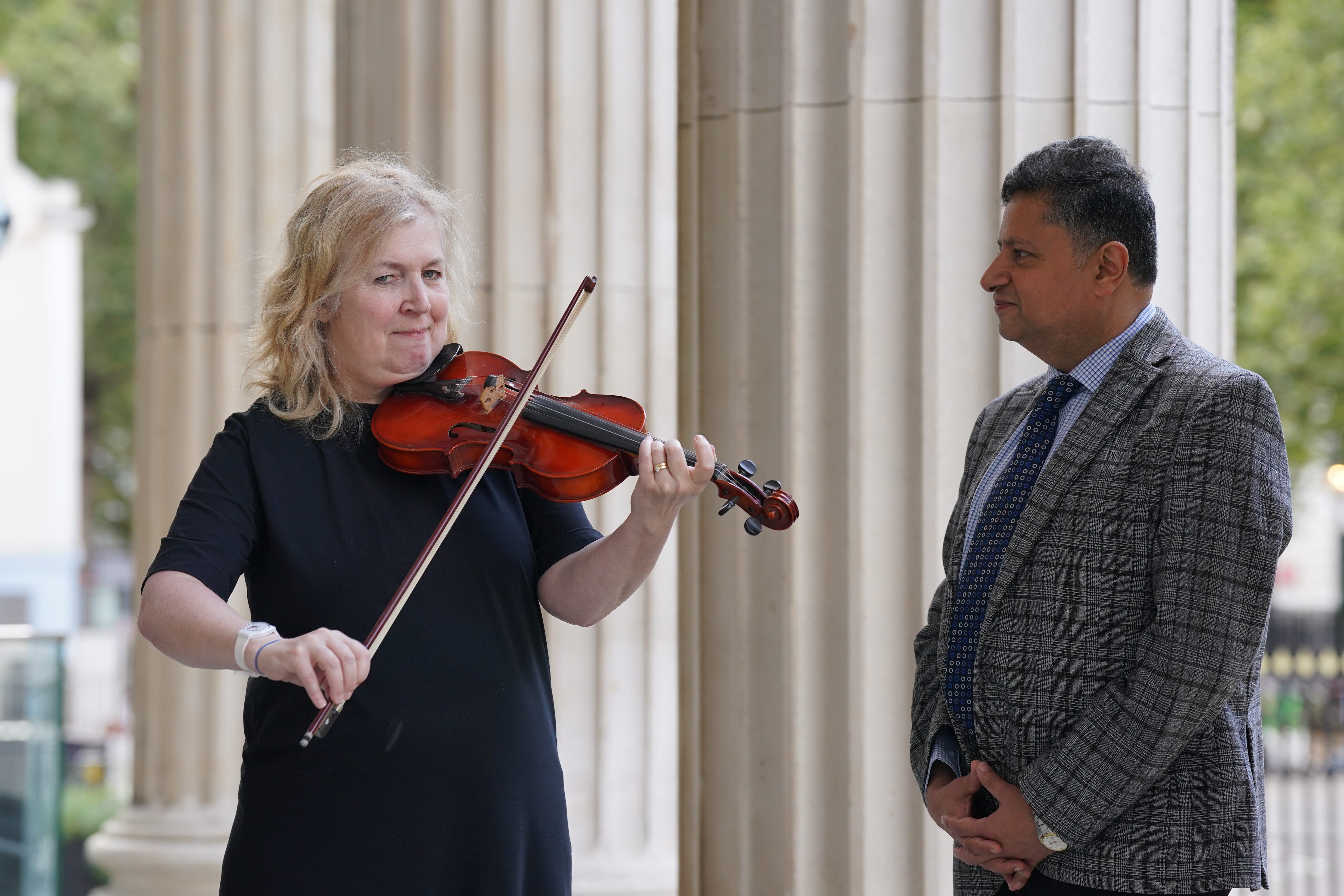Woman who played violin during brain surgery reunites with doctor
She played the instrument to help ensure parts of the brain that control delicate movement were not harmed during the operation

Your support helps us to tell the story
From reproductive rights to climate change to Big Tech, The Independent is on the ground when the story is developing. Whether it's investigating the financials of Elon Musk's pro-Trump PAC or producing our latest documentary, 'The A Word', which shines a light on the American women fighting for reproductive rights, we know how important it is to parse out the facts from the messaging.
At such a critical moment in US history, we need reporters on the ground. Your donation allows us to keep sending journalists to speak to both sides of the story.
The Independent is trusted by Americans across the entire political spectrum. And unlike many other quality news outlets, we choose not to lock Americans out of our reporting and analysis with paywalls. We believe quality journalism should be available to everyone, paid for by those who can afford it.
Your support makes all the difference.A woman who played the violin during her brain surgery has been reunited with the surgeon who removed her tumour.
Dagmar Turner’s operation was specially planned to ensure her ability to play the violin would not be impaired, and she has since returned to playing music in the Isle of Wight.
The former management consultant attended the Hunterian Museum at the Royal College of Surgeons in London on Tuesday along with Professor Keyoumars Ashkan, her consultant neurosurgeon at King’s College Hospital, to rewatch the operation after around two-and-a-half years.
Ms Turner, who plays in the Isle Of Wight Symphony Orchestra, said: “When I saw him, I just had to smile, he always makes me laugh, which is great, and I’ve been eternally grateful to him for what he did with my tumour in my head, because it wasn’t supposed to be there.”
The 57-year-old said she was able to return to her orchestra soon after the surgery. She played the instrument as her tumour was removed to help ensure parts of the brain that control delicate hand movement and coordination were not harmed during the operation.
She added: “Pretty close after the operation, only a few days and weeks, I was really fit. I was straight back in my symphony orchestra.
“My conductor looked at me like, ‘what are you doing here?’ (I was like) ‘I just want to come to rehearsals’.
“It was quite mind blowing in a way but then also, after that, I got all the side effects, fatigue, constantly tired, no energy and I still have that now, which is really annoying me.”
Prof Ashkan said firstly when “everything is working” there can be “euphoria” for patients, but long-term impacts following brain tumour surgery can include fatigue.
He added: “I think we can do a lot to understand why there are issues with fatigue in long-term brain tumour patients, and what (can be done) to help.”
Despite the fatigue, Ms Turner is playing with her musical group and recently performed for three hours.
She was first diagnosed with a slow-growing glioma in 2013, having had a seizure while playing.
She had radiotherapy to treat the tumour but, when it became more aggressive in 2019, she decided to undergo surgery to have it removed.
The medical team mapped Ms Turner’s brain before the operation in January 2020 to identify precisely which parts were active as she played.
She was released from hospital three days after surgery.
Ms Turner and Prof Ashkan, who plays piano, were originally hoping to play the Proms at the Royal Albert Hall as part of an orchestra made up of patients and doctors – and still hope to perform together one day.
“Obviously, Dagmar gets monitored regularly and so far, so good, we keep our fingers crossed that things remain well for her,” Prof Ashkan said.
“And she continues to play, amazing, wonderful violin and then maybe one day we can play together.
“We’ve got a playlist but Covid stopped everything and we practised a little bit together as well.”
Ms Turner is set to meet with her oncologist this week and will continue to have regular scans.


